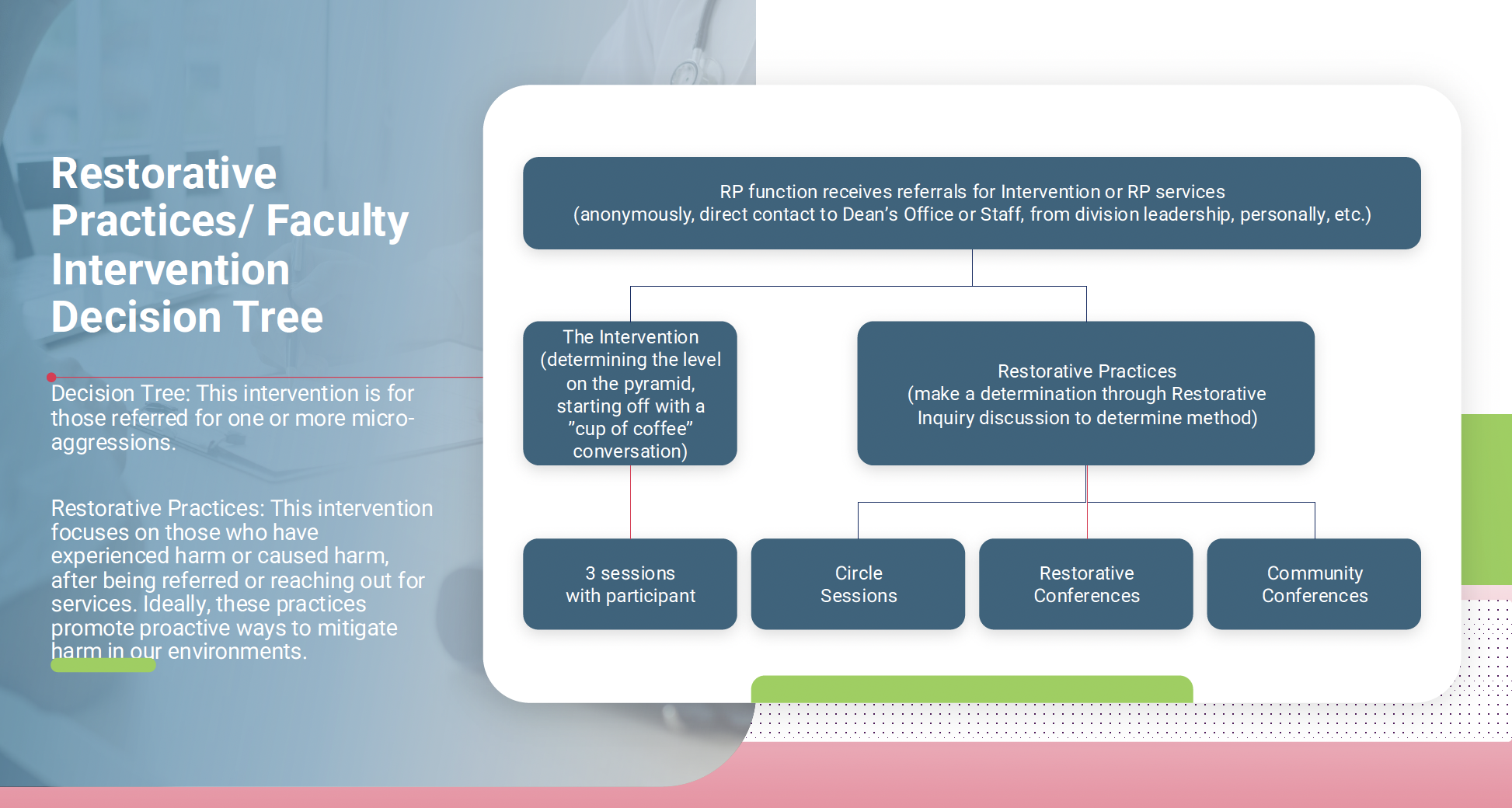The Restorative Practices function, based in the Dean’s Office at the Perelman School of Medicine, offers a confidential and supportive resource for faculty, staff, trainees, and members of the Penn Medicine system. Grounded in the belief that no one is expendable, this initiative provides a safe space for those who have experienced harm to access healing and support. It also offers a pathway for responsible parties to engage in meaningful accountability and repair. By upholding the principle that all individuals have the capacity to cause and mend harm, Restorative Practices fosters a culture of trust, dialogue, and community healing within the Perelman and Penn Medicine communities.
We collaborate to build a safe, restorative, and welcoming environment for all Penn Medicine members. This initiative is a partnership between the Perelman School of Medicine (PSOM) and the University of Pennsylvania Health System (UPHS) - Penn Medicine, working together to strengthen relationships, accountability, and community well-being.
Restorative Practices focus on principles of restorative justice, promoting accountability, responsibility, and relationship-building. Unlike traditional approaches centered on punishment or blame, Restorative Practices encourage open communication, empathy, and collaboration, ensuring that all community members feel valued and heard.
This resource is available to the entire Penn Medicine community, supporting faculty, staff, students, and trainees across academic programs, clinical settings, and campus-wide initiatives. The staff has been trained to integrate Restorative Practices into their daily work, creating a culture of openness, respect, and inclusivity.
Restorative Practices provide a framework for addressing harm and conflicts that promotes healing and growth. This approach facilitates dialogue, fosters understanding, and emphasizes shared responsibility, leading to stronger relationships, reduced disciplinary actions, and enhanced academic and professional outcomes.
PSOM/ Penn Medicine implements Restorative Practices through restorative circles, restorative conferences, and community conferences. Restorative circles create a safe and respectful space for community members to engage in meaningful discussions about issues and concerns. Restorative conferences bring together those who have been harmed and those responsible for harm to collaboratively repair relationships and prevent future harm. Community conferences are used when it is necessary to re-enter a member back to the Penn community (Office, Department, etc.).
Penn Medicine is committed to continuously evaluating and adapting Restorative Practices, actively seeking feedback and engagement from all community members. The ultimate goal is to cultivate a culture of mutual respect, healing, and understanding where all individuals feel safe, supported, and empowered.
For more information about Restorative Practices at Penn Medicine, contact Jack Drummond, the Director of Restorative Practices (jack.drummond1@pennmedicine.upenn.edu). Jack can provide information sessions, training sessions, and guidance on integrating these practices into your community. Thank you for your dedication to fostering a more restorative environment at Penn Medicine.

Jack Drummond
(He/ Him, Òun, Yeye, Él)
Inaugural Director of Restorative Practices
Perelman School of Medicine (PSOM) - University of Pennsylvania
3400 Civic Center BLVD, Building 421
PCAM South Expansion, 6th Floor
Philadelphia, PA 19104-5162
